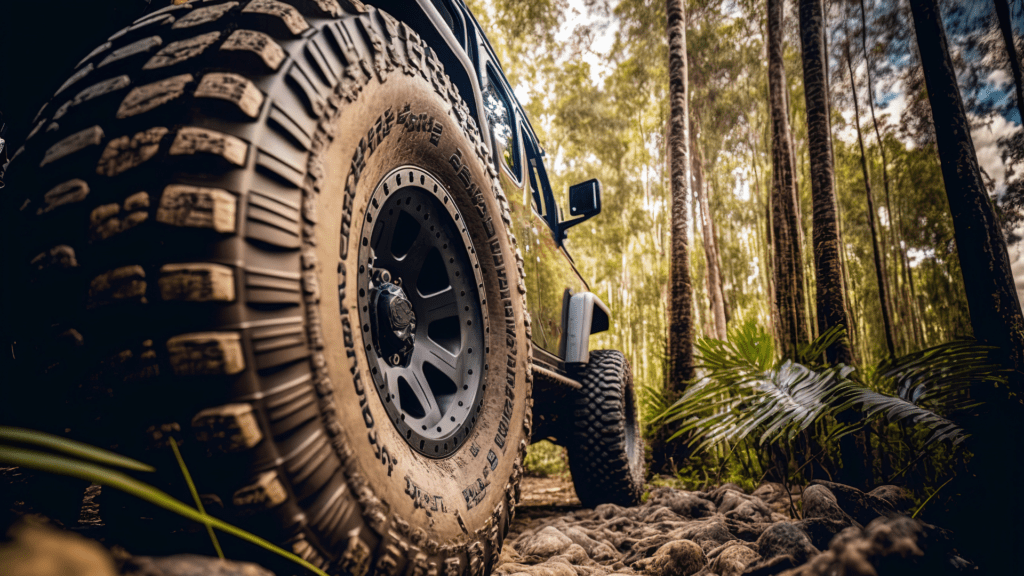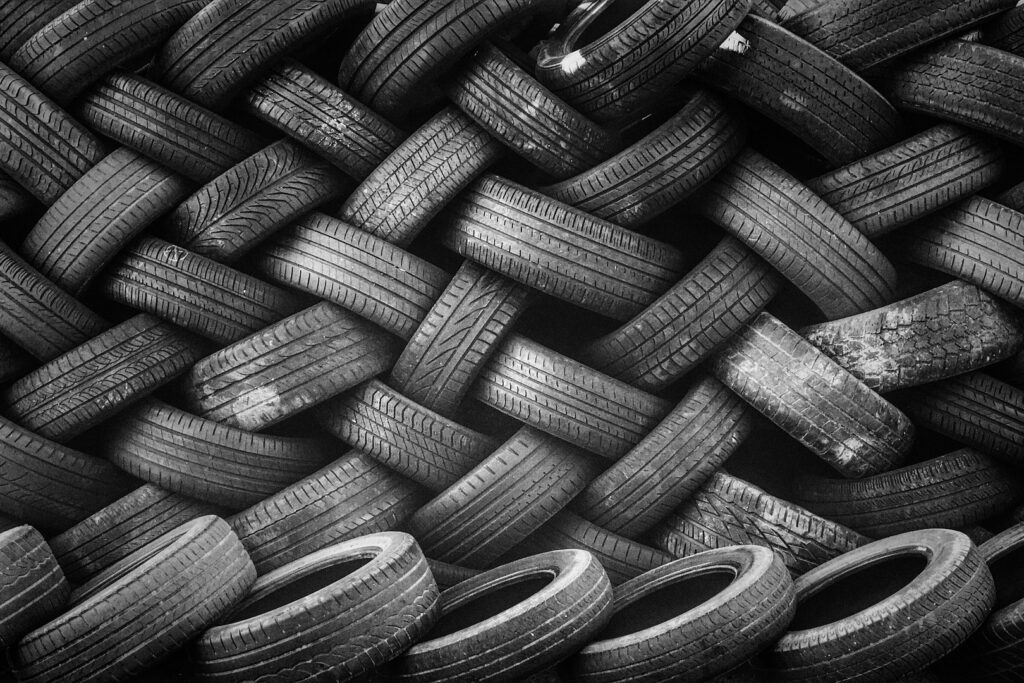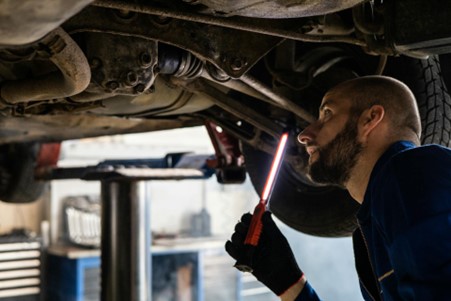The Ultimate Guide On 4×4 Tyres
When it comes to 4×4 vehicles, one of the most important components to consider is the tyres. These specialised tyres are designed to provide better traction and handling in a variety of off-road and on-road conditions. In this article, we will discuss what 4×4 tyres are, the different types of 4WD tyres available, and answer some frequently asked questions about them.
What Are 4×4 Tyres?
4×4 tyres are specifically designed for vehicles with four-wheel drive (4WD) systems. They provide better traction and handling in a variety of off-road conditions, including mud, sand, rocks, and snow. Additionally, they are designed to handle the extra weight and torque of 4×4 vehicles, making them more durable and long-lasting than regular road tyres.
Types Of 4×4 Tyres
There are several different types of 4×4 tyres available, each designed for specific terrain and weather conditions. Here are the most common types of 4×4 tyres:
Mud Terrain (MT) Tyres
These tyres are designed for extreme off-road conditions, including deep mud and rocky terrain. They feature large, aggressive tread blocks that provide maximum traction and are highly puncture resistant.
Mud terrain tyres may produce more road noise and vibration on paved surfaces. They may also have a shorter tread life than other types of 4×4 tyres due to their aggressive tread pattern. Mud terrain tyres are best suited for serious off-road enthusiasts who spend most of their time on challenging terrain. Most tyre manufacturers recommend installing Mud Tyres if you spend at least 70-80% of your time off the road.
Want to learn more about Mud Tyres? Read our blog about everything you need to know about mud tyres.
All-Terrain (AT) Tyres
These tyres feature a less aggressive tread design than mud terrain tyres, but still provide good traction in most off-road and they are smoother on paved roads. They are also designed for good road performance, making them a popular choice as SUV tyres. It’s crucial to keep in mind that these tyres are designed for all-purpose use, which means they may not be the optimal choice for individuals who exclusively drive on paved roads and highways or solely on off-road. 4×4 all terrain tyres provide a balance between off-road capability and on-road comfort. Normally, manufacturers recommend a split of 60% on road and 40% off-road use.
Rugged Terrain (RT) Tyres
Rugged terrain tyres are designed to provide optimal traction on off-road surfaces, such as rocky or muddy terrain. These tyres are typically larger and have deeper treads with wider spaces between them, allowing them to grip uneven surfaces and maintain traction in challenging conditions. They also tend to have stronger sidewalls to resist punctures from sharp rocks or debris. Tyre manufacturers have developed this hybrid-terrain tyre in response to their customers’ demand for a tyre that provides both excellent off-road traction and on-road comfort. These tyres, also known as rugged terrain tyres, are a combination of mud terrain and all-terrain tyres.
Highway Terrain (HT) Tyres
These tyres provide a smooth and quiet ride for passengers on paved roads and highways. Highway terrain tyres typically have a shallower tread pattern and closer spacing between the treads, which reduces rolling resistance and increases fuel efficiency. The tread design also allows for improved handling and stability on paved roads. Overall, highway terrain tyres are ideal for vehicles used primarily for commuting, long-distance driving, and other on-road activities, providing a comfortable and efficient ride with good handling and performance on paved surfaces. Normally, manufacturers recommend a split of 80% on road and 20% off-road use.
Frequently Asked Questions About 4×4 Tyres
1. Can you put 4×4 tyres on a normal car?
It is not recommended to put 4×4 tyres on a normal car. 4×4 tyres are designed for heavier vehicles with 4WD systems. Additionally, they may negatively impact the handling and safety of a normal car.
2. What is the difference between 4×4 tyres and road tyres?
4×4 tyres are designed to handle more weight and torque than road tyres, making them more durable and long-lasting. Some of the 4×4 tyres also feature more aggressive tread designs, providing better traction in off-road conditions. Road tyres are designed for good performance on smooth and paved surfaces.
3. What is the best size tyre for 4×4?
The best size tyre for a 4×4 vehicle will depend on several factors, including the make and model, the intended use of the vehicle, and the size of the wheels. It is best to consult with a tyre specialist to determine the best size tyre for your specific vehicle.
4. How often should you change 4×4 tyres?
The lifespan of 4×4 tyres will depend on several factors, including the type of terrain they are used on, frequency of use, tyre quality and driving style. Obtaining advice from experienced off-roaders, 4WD clubs, and your local tyre retailer before making a significant investment in 4×4 tyres is highly valuable.
It’s important to regularly check the tread depth of 4×4 tyres to ensure optimal performance and safety on both on and off-road conditions. Additionally, proper maintenance and inflation of 4×4 tyres can help to extend their tread life and improve their overall performance.
Considering buying 4×4 tyres? Read our blog about the 8 mistakes to avoid when buying 4×4 tyres.

Don’t Stop Here
More To Explore
New vs. Second Hand Tyres – Which is Best for You?
When it comes to choosing tyres for your vehicle, the debate between brand-new tyres and…
How to Avoid Aquaplaning and How to Prevent it?
Aquaplaning is a phenomenon that occurs when a vehicle loses contact with the road surface…
Why Your WoF Inspection Might Not Pass?
We all know that a Warrant of Fitness (WoF) is an important requirement in New…



